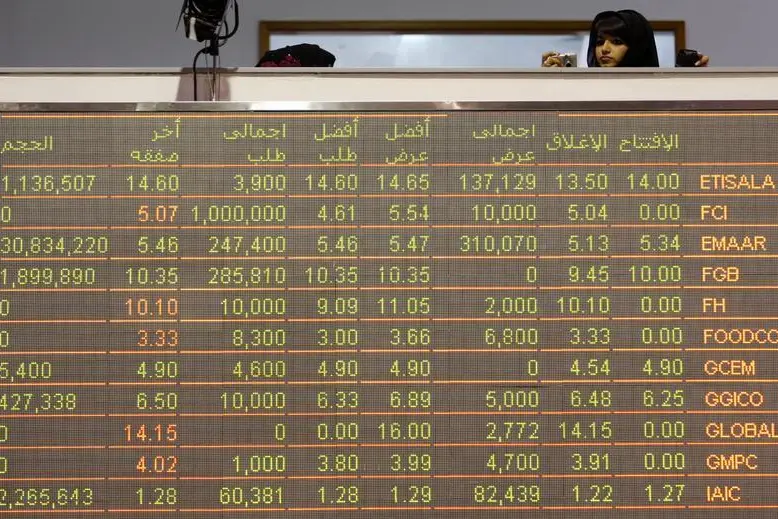PHOTO
Most stock markets in the Gulf ended higher on Tuesday on bets that the U.S. Federal Reserve will start to cut interest rates early this year, although the Qatari index retreated on profit-taking.
Monetary policy in the six-member Gulf Cooperation Council (GCC) is usually guided by Fed decisions as most regional currencies are pegged to the U.S. dollar. Saudi Arabia's benchmark index gained 0.7%, with the country's biggest lender Saudi National Bank rising 4%.
In Abu Dhabi, the index was up 0.1%. Oil prices - a catalyst for the Gulf's financial markets - rose more than 2% in the first session of the new year, boosted by potential disruption to Middle Eastern supply after the latest attack on a container ship in the Red Sea, and by Chinese demand hopes.
U.S. helicopters on Sunday repelled an attack by Iran-backed Houthi forces on a Maersk container vessel in the Red Sea, sinking three Houthi vessels and killing 10 of the militants, fuelling risks of the Israel-Hamas war becoming a wider conflict.
Dubai's main share index advanced 0.8%, with toll operator Salik Co jumping 4.5% and sharia-compliant lender Dubai Islamic Bank finishing 1.4% higher. The Qatari benchmark retreated more than 1%, snapping an eleven-session winning streak, weighed down by a 2.8% decline in Qatar Islamic Bank.
Outside the Gulf, Egypt's blue-chip index climbed 2.7%, with most of the stocks on the index in positive territory, including top lender Commercial International Bank , which was up 3.1%.
- SAUDI ARABIA rose 0.7% to 12,123
- ABU DHABI rose 0.1% to 9,588
- DUBAI gained 0.8% to 4,091
- QATAR dropped 1.1.% to 10,708
- EGYPT up 2.7% to 25,502
- BAHRAIN declined 0.7% to 1,957
- OMAN added 0.2% to 4,589
- KUWAIT was up 1.5% to 7,592
(Reporting by Ateeq Shariff in Bengaluru Editing by Mark Potter)




















